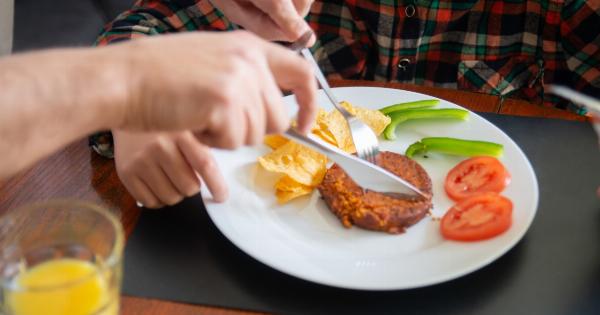Do you find yourself constantly thinking about food? Are you always worried about what you’re going to eat next? Do you feel guilty after eating certain foods? If you answered yes to any of these questions, you may be suffering from food anxiety.
Food anxiety is a type of anxiety that revolves around food. It can take many forms, including obsessive thoughts about food, fears of gaining weight, and guilt over eating certain foods.
This type of anxiety can be both physically and mentally draining, often causing those who suffer from it to avoid certain foods or social situations that involve food.
Causes of Food Anxiety
There are many reasons why a person may experience food anxiety. Some of the common causes include:.
Past Trauma
People who have experienced trauma in the past, such as abuse or neglect, may develop food anxiety as a coping mechanism.
Perfectionism
People who have a tendency to be perfectionists may also experience food anxiety. They may feel guilty when they eat foods that they perceive as unhealthy or not aligned with their strict dietary goals.
Cultural or Societal Pressure
People who live in cultures or societies that emphasize thinness or certain types of diets may also develop food anxiety.
The Next Day’s Solution: How to Overcome Food Anxiety
Overcoming food anxiety is not easy, but it is possible. The key is to learn how to manage your anxiety and change your relationship with food. Here are some tips to help:.
Identify your Triggers
The first step in overcoming food anxiety is to identify your triggers. What situations or emotions cause you to feel anxious about food? Write them down and try to avoid or manage these triggers in the future.
Practice Mindfulness
Mindfulness is a practice that involves being present in the moment. When it comes to food, mindfulness can help you be more aware of your body and its needs. This can help you make better choices about what to eat and when.
Challenge Negative Thoughts
One of the main drivers of food anxiety is negative self-talk. Challenge these thoughts by asking yourself if they are based on facts or just fears. Try to reframe your thoughts in a more positive light.
Practice Self-Care
Self-care is essential for managing food anxiety. This means taking care of your physical and mental health. Get plenty of sleep, exercise regularly, and practice relaxation techniques such as yoga or meditation.
Seek Professional Help
If your food anxiety is severe, it may be beneficial to seek professional help. A therapist can help you work through your anxiety and develop coping strategies.
Conclusion
Food anxiety can be a difficult and exhausting condition to deal with.
However, by identifying your triggers, practicing mindfulness, challenging negative thoughts, practicing self-care, and seeking professional help if necessary, you can overcome this condition and regain control over your relationship with food.





























